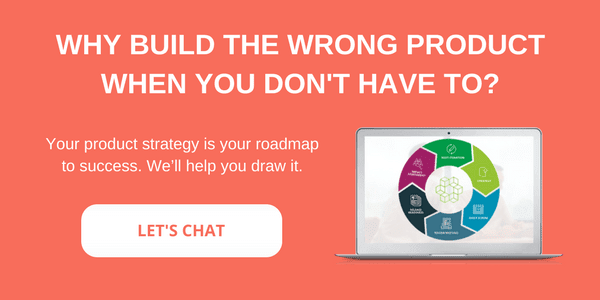“Disrupt” is the buzzword and the ultimate goal of the startup and tech worlds these days. It seems like everything is either being disrupted, is on the verge of disruption, or needs to be disrupted. Nearly every entrepreneur and startup founder seek to disrupt their chosen industry – and it’s what every successful disruptive company has in common that’s important for those who want to be disrupters in their own right.
Disruption is more than a potential path to fortune and fame – it’s how you’ll be remembered in your industry for building a better “mousetrap,” so to speak (whatever that “mousetrap” might be). The right disruption can change the world! Think about some of the world’s most famous disrupters:
- Apple disrupted the way we interact with technology and use it in our daily lives.
- Airbnb disrupted the hospitality industry.
- Twitter disrupted the way we get news, share news, and interact with people.
- Netflix disrupted the way we get our entertainment.
To be the company that changes the way your industry works or does business is huge. So, what’s the secret sauce? What’s the pattern when it comes to disruption, beyond just technological advances, which are moving at lightning speed these days?
Here are 4 key traits that every successful disruptive company has in common:
1. They understand consumer trends before they become trends.
“A lot of times, people don’t know what they want until you show it to them.” – Steve Jobs
This is the first hallmark of a disruptive company. Its leaders anticipate consumer trends before everyone else does.
For Apple, it was creating user-friendly technology – from the first computers you could use right out of the box to personal technology (such as iPods and iPhones). They also created revolutionary cloud services, such as iTunes. For Airbnb, it was tapping into the sharing economy using technology (before it was cool).
2. They focus on smaller markets first.
According to an article in the Harvard Business Review, “Disruption describes a process whereby a smaller company with fewer resources is able to successfully challenge established incumbent businesses.”
As industry leaders continue to focus on bigger markets and bigger profits, the startup seeking disruption targets smaller, overlooked segments. The soon-to-be-disruptive company provides that segment with something unique that they love. It could be better functionality, increased access, or reduced cost. Whatever it is, the idea sets in and begins to grow. Incumbent businesses at this point don’t bat an eye or even try to compete, because they don’t view as competition this startup that’s serving a tiny portion of the market.
But what began as a popular product for a niche audience takes hold and spreads to the mainstream population. That’s when disruption happens.
One great example of this is Twitter. Twitter was built as an SMS application for broadcasting messages to friends. It started as a platform for a niche community. Today, it has grown to be a network for information – one that even our current president has embraced and uses extensively to broadcast his thoughts, feelings, and agenda.
Another example is Airbnb. Airbnb’s founders initially focused on launching at major events where hotels were impossible to come by. The platform then grew and evolved from serving only people in desperate need of lodging, to a viable and popular option for travelers.
3. They refine the business model before the product.
One major thing disruptive companies have in common (and where many companies fall short) is they create a solid business model. Before refining their products, they tweak their business model until it’s just right.
Netflix pivoted several times before they disrupted the entertainment industry. From sending out DVDs through the mail to rental kiosks to an online streaming platform for entertainment, Netflix changed its business model several times before they got it right. What prompted them to keep changing and tweaking their model were two things: competition (because every time they started to get popular, other companies tried to copy or challenge their model) and technology (when other models failed, they embraced new technology that made streaming movies possible long before others saw the value in such a service).
Disruptive business models also tend to be very different from the models of competitors within their own industries. With Netflix, the model was to get customers to subscribe to their on-demand platform vs. patronizing brick and mortar video rental stores. Facebook started as a way to connect college students. It wasn’t until later that they figured out how to monetize their service through advertising and data collection. Apple refined the marketplace business model by bringing buyers and sellers together directly (iTunes and the App Store).
4. They build raving fans that take them into the mainstream.
This is an important step in the process to disruption. Disruptive companies don’t just appeal to a smaller segment. They create evangelized advocates of their brand who essentially carry them into the mainstream.
Think about how die-hard Apple fans are. This is one of the biggest ways Apple has been so disruptive. Their users LOVE Apple and are extremely loyal! Dollar Shave Club did the same thing. They broke into an industry already flooded with huge competitors by offering the same product in a different way. They appealed to the market by making their company feel like a men’s club while offering their product at a lower cost. They built a culture and brand voice that translated into raving fans.
As Richard Branson said, “Disruption is all about risk-taking, trusting your intuition, and rejecting the way things are supposed to be.”
Do you have a technology solution that could disrupt your industry? Let’s chat! We can help you refine your business plan, target the right market segments, and build raving fans that take you where you need to be.







